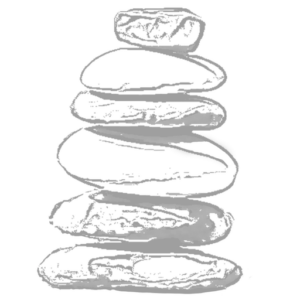Five simple strategies to help proactively surf the information deluge that many of us live in so that it serves us rather than drowning us.
I’m old enough to remember a world before email and before phones that held access to much of the world’s information if I’m only savvy enough to type in the right key words. For a curious kid this was often really frustrating. When I wanted to find out the answers to questions – like ‘where does yogurt come from’, knowing where to go to find the information was really hard. And usually relied on finding someone who knew the answer or getting help looking things up at the library. Understanding the Dewey library system was critical in this. And learning from others depended on being in the right place at the right time – either physically or even just in front of the television or radio. And this added a certain preciousness to these events. I was fortunate enough to hear Desmond Tutu speak live when I was university. Now, I can sort through dozens of podcasts and recordings to learn more from him at a time of my choosing.

The interesting thing to me though is that, even though accessing information is so much easier than it was, I’m not sure that it actually means that I absorb more. The flood of information that I could reach makes me less likely to want to dip my toes in the river. I’m curious whether this happens to you too – I often find myself with a question that I just don’t get round to finding out the answer to even though it would only take a few seconds of googling to track it down.
As someone who loves learning I’ve been pondering ways to overcome this dilemma and these five suggestions have been helpful to me to keep me absorbing and applying new knowledge without getting drowned by it.
- Find a way to curate the deluge. I’m not talking about the knowledge we have to access to do our jobs properly. I’m talking about how to manage through all the additional, tangential streams that we want to engage with. Whether social media, newsletters, news, books etc. One of the ways I’ve found to do this is to create a focus. Here are some suggestions that I have used but this is not exhaustive:
- Pick 3-5 people/organizations you want to follow and pay attention to them for a set period of time. When I do this I try to make sure I am drawing from a diverse backgrounds so I am getting multiple perspectives.
- Pick a theme for the month and actively search out things on that topic.
- Pick one stream and only really pay attention to that. This month I am really tracking on LinkedIn. Sometimes it’s Facebook. That way I can also start to see the ebbs and flows of what gets sent my way.
- Experiment with switching off and doing a reset – surrender to the recognition that it is impossible to absorb it all and the more we try, the more we find there is. FOMO is real in the information streaming world too. And technology is trying to exploit us to keep us scrolling. It’s easy to start feeling anxious, if I don’t go to FB today I’ll miss something important. (Spoiler alert – we are all missing important stuff all the time. It’s just not possible to stay on top of it all). Try intentionally stepping away (for a short period if this is anxiety producing) and then get curious – when you come back do you feel as though you missed out on something important? And
- Be a tourist in the world of information. Sometimes it can be fun to have (boundaried) time where we intentionally create free exploration sessions. Just like when we are on vacation. A time when we do just follow the currents that the internet is taking us on (never losing track that ‘someone’ or some algorithm will be trying to steer you in a particular direction). But just like when we got lost in a city we don’t know and it takes a while to find our way out – set a timer to help you find your way back.
- Find the use case. Set an intention for what you will ‘do’ with the information – how is it serving you? When you find yourself absorbed in something that has captured your attention, ask how it is supporting this intention and then make an active choice as to whether to continue to engage or not.
- Listen to your body. What are the cues that let you know that you may be experiencing overwhelm? For me I notice a physical sensation that is similar to when I have eaten too much popcorn at the movies but somehow can’t stop eating. I’ve learned that when I notice this I need to force myself to get up do something else and do a reset. A counter point is that I notice that when I am better managing my relationship with all this information I find myself paying more attention to the physical world when I am in it. I literally find myself stopping to ‘smell the roses’ – hence the picture for this post.
I’d love to hear what other strategies you have developed to help manage the flood of information that most of us have rushing towards us through multiple streams each day. For me it’s a process but one I feel than I can, if not control, then at least help steer.
